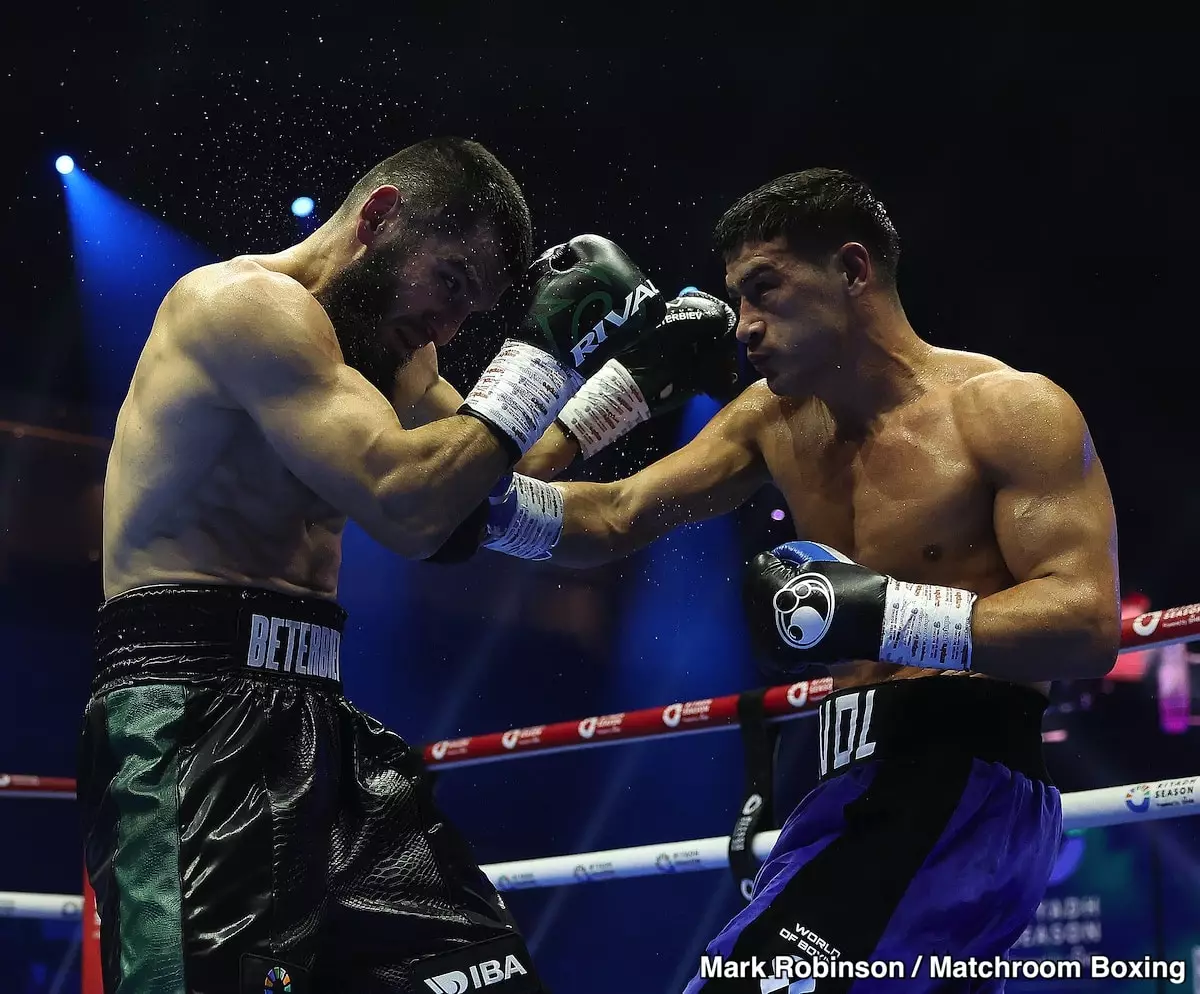By BoxingHit Staff-
The boxing landscape is replete with narratives of redemption and risk. For Dmitry Bivol, the recent fight against Artur Beterbiev, which ended in a majority decision loss, puts him in a precarious position. The temptation to seek an immediate rematch is fraught with peril, as it may not only cement his place among the elite in the light heavyweight division but could also usher in a disheartening chapter in his career if he loses once more.
In the world of professional boxing, first defeats can be managed, analyzed, and sometimes even spun into future successes. However, for Bivol, a second consecutive loss, especially via knockout, could have devastating implications. The psychological toll of such a defeat cannot be underestimated. Following his bout with Beterbiev, it’s apparent that Bivol’s confidence may already be wavering. He was exposed in several rounds, particularly during the later stages of the fight, where he struggled to maintain his footing against Beterbiev’s onslaught. Such a performance can leave scars that linger long after the bout has concluded.
A knockout defeat can dismantle a boxer’s self-belief. For Bivol, this could hinder his ability to compete with other upper-tier light heavyweight fighters, including Joshua Buatsi, David Morrell, and even dangerous contenders like David Benavidez. It’s worth considering whether the Bivol who stepped into the ring against Beterbiev can withstand the mental pressure of following that performance with another loss. The stakes are incredibly high, as his career trajectory hangs in the balance.
The light heavyweight division is unforgiving, populated with fighters capable of delivering punishing blows. If Bivol does take the rematch and suffers a loss, the path back to title contention will be exceedingly difficult. To regain his status, he would need to conquer formidable opponents who themselves are vying for championship glory, such as Anthony Yarde and Oleksandr Gvozdyk. Each of these fighters presents unique challenges that make any future matchups daunting.
It raises the question: how many high-stakes losses can a fighter endure before they are perceived as damaged goods? In boxing, a fighter’s reputation can diminish significantly after just one crushing defeat. For Bivol, a knockout loss could recalibrate perceptions about his abilities and resilience, making it increasingly challenging to secure lucrative fights.
If taking the immediate rematch with Beterbiev does not yield the desired results, Bivol might consider moving down to the super middleweight division. This transition could potentially rejuvenate his career amidst less aggressive competition. Compared to the fierce contestations at 175 pounds, the super middleweight division is relatively less populated with elite-level boxers, aside from Canelo Alvarez, who remains a formidable force.
Moreover, a move would also open up worthier financial opportunities. Capturing a title in a less competitive division could significantly enhance Bivol’s marketability and earning potential while enabling him to regain the confidence lost in his encounter with Beterbiev.
Roy Jones Jr., a renowned figure in boxing, emphasized the importance of strategic decision-making in the aftermath of the bout, suggesting that the fighter’s performance warranted a rematch. While it’s true that both fighters demonstrated elements of their skill sets, a drawn or closely-fought match does not always necessitate an immediate rematch. Bivol must weigh the risks carefully: defeating Beterbiev could replenish his confidence, but facing another loss may cripple him further.
The decision whether to pursue an immediate rematch with Beterbiev presents Dmitry Bivol with a complex dilemma. He stands at a crossroads where the potential for glory is paired with the visceral threat of further damaging his reputation and mental fortitude. As he considers his next steps, both his career aspirations and psychological well-being will hang in the balance, making this moment a defining point in his legacy.


Leave a Reply